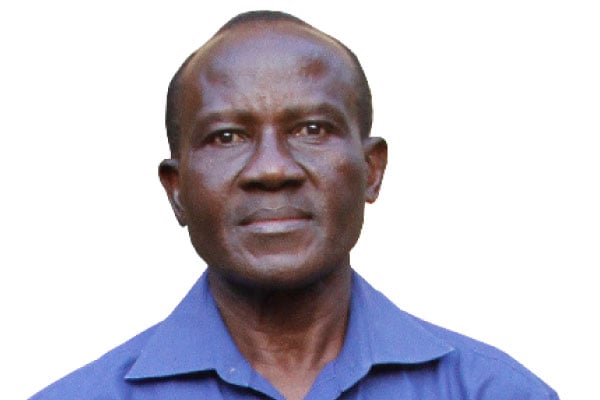Prime
On Elvis Mbonye and cults

Author: Mark Ssesanga. PHOTO/FILE/COURTESY
What you need to know:
- One wonders why the need to replace Jesus Christ with such an ambiguous phrase; for who knows the God of this prophet...
On Sunday November 26, the Sunday Monitor published an article by Elvis Mbonye titled: Who are cults?
This is the second article Mr Mbonye is writing in as many weeks, the first being about false prophets.
In the article, Mr Mbonye says the words ‘cult’ and ‘occult’ are not derived from the Bible. He is cunningly attempting to suggest that these are not biblical principles, and no one should be concerned about them. To back up his claim, he provides a Collins Dictionary meaning of the word; a person or thing that is popular or fashionable among a particular group or section of society.
But in doing so, he conveniently avoids two more widely accepted definitions of the word provided by the same dictionary; (1) a misplaced or excessive admiration for a particular thing, and (2) a religion or sect considered to be false, unorthodox, or extremist, with members often living outside of conventional society under the direction of a charismatic leader. I suspect the reason he avoids them is because they would put him directly in the firing line he is skillfully attempting to avoid.
While it is true that the Bible does not specifically use the word ‘cult’, that does not mean the Bible has nothing to say about people or groups that operate like one. In fact, the opposite is true.
For example, Acts 20:17-31 warns pastors against those who will lead people astray and after themselves. 2 Peter 2 and Jude warn of false prophets and teachers who will bring destructive teachings into the church and who many will follow. Jude goes further to encourage believers to contend for the faith because of these false teachers, something Mr Mbonye is strongly against.
Mr Mbonye’s defence of the “occult” is no different. He makes the claim that, “all believers in miracles could fit right here.” Like he did with cults, he presents only what is beneficial to his claim while ignoring Bible passages and actual definitions because they would most likely be detrimental to his claims and cause.
The Bible makes a clear distinction between the supernatural work of God (miracles, signs and wonders) and the mystical, magical powers or practices of the occult. Deuteronomy 18:9-14 warns the Israelites against several practices that fall under the things Mr. Mbonye is attempting to defend. Several other passages do the same, warning Israel against practicing things the nations around them practiced (Jeremian 10:2, Leviticus 19:31, Isaiah 8:19, Jeremiah 23, Acts 16 etc.)
Jeremiah 23:23-28 has a stern warning and rebuke for Israel (and us), against false prophets and following their lying dreams instead of following the revealed word of God. We would do well to heed the same warnings.
So, what is a cult? In Christian terms, a cult is a group that perverts the gospel, based upon an unholy devotion to a person, a principle, or both. Another term that is relevant to this discussion is Antichrist. That is because cult leaders tend to present themselves as a form of Christ. The word has two primary meanings: against Christ, and in place of Christ. Antichrist, therefore, means those who oppose Christ and seek to put themselves in His place.
There is a group in Kampala whose leader and followers claim that he is God’s gift to this nation and the world, contrary to scripture that says God’s free gift is eternal life in Jesus Christ (Romans 6:23). Their leader claims that he has instructions from the Father to take people to heaven on a regular basis, contrary to scripture which says Jesus is the only way and no one goes to the Father except through Him (John 14:6). They refer to the “God of prophet…” instead of Jesus Christ, yet they claim to be his followers.
One wonders why the need to replace Jesus Christ with such an ambiguous phrase; for who knows the God of this prophet, the leader of this group.
Perhaps the most relevant question to ask is; Is that man a cult leader?
Mark Ssesanga is a Masters student in Christian Apologetics at Southern Evangelical Seminary, North Carolina, USA




